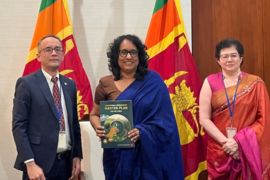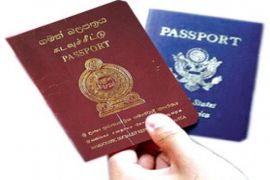While the ISIS claim still needs to be thoroughly investigated, the deadly attacks that killed more than 300 innocents were obviously a crime against humanity, with the ISIS, again hijacking Islam for its unjustifiable acts of terrorismBogor, W Java (ANTARA) - The ISIS has claimed responsibility for Easter Sunday's deadly coordinated suicide bombings on churches and hotels in Sri Lanka, the New York Times and many other global media reported this week.
While the ISIS claim still needs to be thoroughly investigated, the deadly attacks that killed more than 300 innocents were obviously a crime against humanity, with the ISIS, again hijacking Islam for its unjustifiable acts of terrorism.
Islam is indeed a religion of peace and is "rahmatan lil alamin" or a blessing for the universe but it is frequently hijacked by individuals or groups, including ISIS, who commit acts of terror and link what they do or their names to Islam.
In response to such crimes, Indonesia's leading Muslim scholar Prof. Komaruddin Hidayat has urged inter-faith communities in Indonesia to stand firm in the fight against terrorism.
"The bombings in Sri Lanka are a testament to the fact that radical and terrorist movements are rampant everywhere," Komaruddin Hidayat told ANTARA on Monday while speaking in response to the attacks.
Those behind the bombings and the recent mosque attack in New Zealand were targeting people at houses of worship, and such acts can trigger doubts and hate against particular religions, he cautioned.
The atrocity against several churches on Easter Sunday could offend Christians worldwide and trigger condemnation against the terrorists' faiths, as religions transcend physical boundaries of nations and countries, he pointed out.
Hence, the ex-rector of Syarif Hidayatullah Islamic University cautioned of tensions arising among different faiths in case the fallout of the incident was not handled carefully while calling on the Sri Lankan government to take serious note of this and take the necessary steps.
The Sri Lankan Government’s apt handling of this atrocity will prevent other devastating acts aimed at undermining the nation's solidarity.
The government and citizens of New Zealand had demonstrated their ability to aptly deal with the deadly mosque attack. Consequently, several nations across the globe extended their sympathies and support to members of the Muslim community in New Zealand, he noted.
CNN's report showed that the synchronized wave of bombings on churches and hotels on Easter Sunday was claimed by officials as "a brand-new type of terrorism".
The Indonesian Government had condemned in strong terms these coordinated bombings and extended deep condolences to the victims and their families.
The events in New Zealand and Sri Lanka have triggered a warning to other countries to be alert against the proliferation of radical and terrorist ideologies.
Considering its dangers, this issue has even been raised by Vice President Jusuf Kalla at an event of the Association of Indonesian University Mosques in Jakarta recently.
Based on statistical data, Indonesia has at least 4,586 higher educational institutions. All universities and colleges generally have at least one mosque to help its academic community members offer their obligatory prayers.
Wanting to ensure that no mosques in campuses are misused, Kalla has urged academic community members of universities across Indonesia to prevent the spread of religious radicalism on campuses.
While students or lecturers could become fanatical or enthusiastic with regard to their religious beliefs their fanaticism should not veer towards religious radicalism, which is then proliferated among members of academic communities at mosques within their respective universities, he affirmed.
Coordinating Minister for Political, Legal, and Security Affairs Wiranto has also warned that youngsters are more vulnerable to the spread of this radical ideology because most of them have access to the internet.
"We know that our youngsters can be affected by the proliferation of radicalism. Many of them are influenced by the teachings of radicalism which, eventually, end up as acts of terrorism," he said when speaking at the swearing-in ceremony of the Southeast Asian Cyber's Peace Ambassadors in Jakarta, Wednesday.
However, he did not possess the exact data on the number of Indonesian youngsters affected by radical ideology as compared to those from the older generation, Wiranto said.
The rapid development of digital technology and the internet has enabled radical groups to build opinions and recruit people, he said, adding that Indonesia has around 132 million internet users, 106 million social media users, and 371 million smartphones.
In fact, youngsters communicate and rely mostly on information that is disseminated through internet-based channels making them easy targets.
To prevent them from being influenced by radical content freely available on the internet, the younger generation needs to be empowered with critical thinking capability and digital literacy.
This could help protect them from being influenced by these destructive ideologies that carry out acts of violence and terror.
Therefore, he appreciated the presence of the Southeast Asian Cyber's Peace Ambassadors for helping halt the proliferation of terrorism and extremist ideologies.
Besides a common need to save young Indonesians from being influenced by the religious radicalism, the proliferated ideology of white supremacists has also become a serious challenge for those in the West because the terrorist who had killed Muslims in Christchurch was a white supremacist.
The acts of violence carried out by both radicals and white supremacists are definitely crimes against humanity, and they are the common enemies of all nations.
Editor: Bambang Purwanto
Copyright © ANTARA 2019






